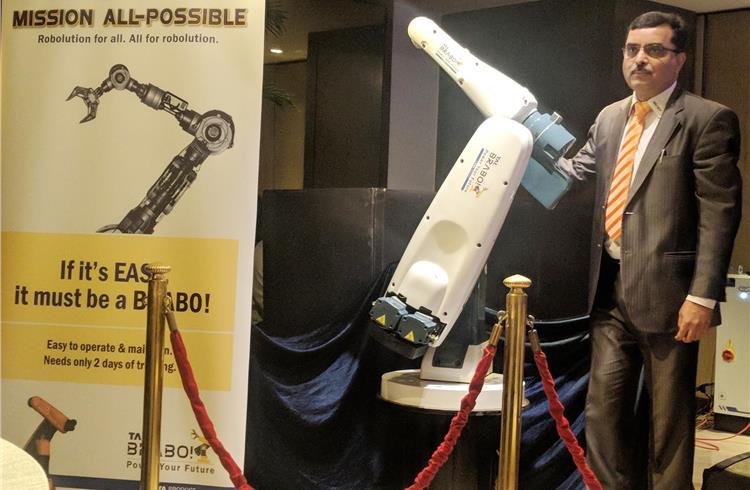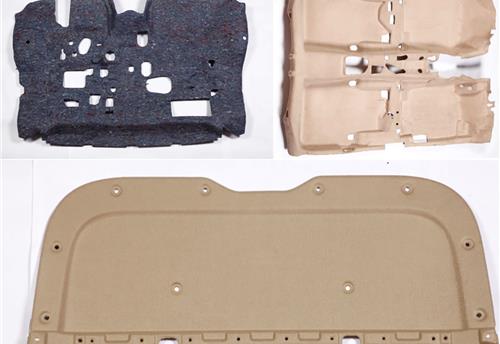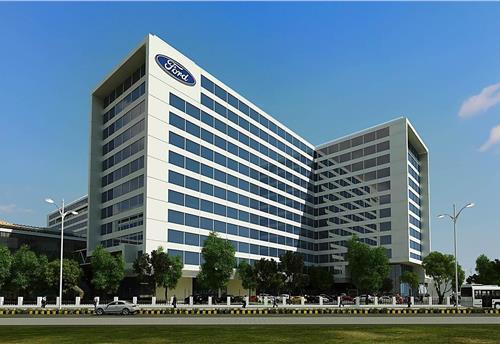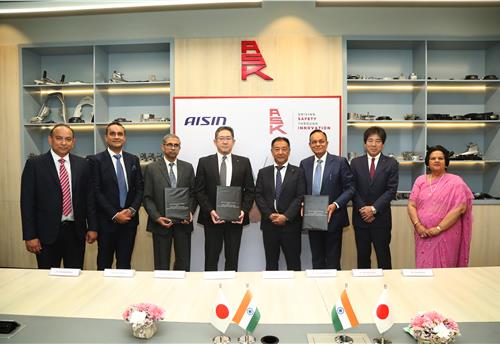TAL Manufacturing Solutions launches 6-axis Brabo industrial robot
The Pune-based subsidiary of Tata Motors aims to cater to the automation requirements of the automotive, electronics, foundry, FMCG, metal and plastic fabrication industries.
TAL Manufacturing Solutions, a wholly-owned subsidiary of Tata Motors and a part of its engineering division, today launched its new 6-axis Brabo TR06-6 industrial robot, priced between Rs 750,000-Rs 800,000. The product is aimed at catering to the robotic requirements of the automotive, electronics, pharmaceutical and the FMCG sectors.
The robot, which is an upgrade over its first product launched in April 2017 – the Brabo 5-axis – offers additional linear as well as rotational motion along all three axis, thus being a 3+3 dimensional robot with a 6kg payload capacity.
The easy to install, use and maintain Brabo TRO6-6 is capable of automating tasks like welding, cutting, sealing, gluing, material handling, vision inspection, chamfering, deburring and other applications.
Designed and developed from the perspective of being easy to install and operate, the Brabo TR06-6 holds four patents to its design and can perform specialised and complex fielding applications like MIG welding. The company sees over 50 percent of the need for robotisation coming in from the weld shop from the industrial space, and will offer an additional attachment to integrate various welding torches along with the robot.
While the company aims to offer reliability, flexibility, user-friendliness, good aftersales support and low maintenance costs to its customers, SMEs and MSMEs are its key target groups, where it is seeing good automation growth coming in from Tier 1 and Tier 2 automotive component suppliers.
A Tata product
TAL Manufacturing Solutions has designed the robot completely in-house and it boasts almost 95 percent localisation content. Various Tata Group companies have aided the overall development of the robot, where the robot's styling comes done by Tata Elxsi, Tata AutoComp Systems manufacturing the side-panels, Tata Strategic Management Group (TSMG) identifying the automation market in India and Tata Capital lending loans to SMEs for easier adoption of the futuristic technology.
The company feels that while industrial automation is still at a very nascent stage in India at the moment, it is doing its bit to make smaller companies quickly embrace robotisation by offering a cost effective solution and eliminate their fear of moving forward. TAL claims that the return on investment hovers between 15-20 months depending upon the volumes and nature of work of its customers.
Speaking to Autocar Professional, Amit Bhingurde, Chief Operations Officer - Robotics, TAL Manufacturing Solutions, said, “The robotisation market in India stands at roughly 6,000 units in the present day according to the International Federation of Robotics (IFR) and is pegged to grow dramatically to 20,000 units over the next five years.”
“While OEMs are already at a very high level of automation, which stands between 60-70 percent of the operational work, it is the Tier 1, 2 and Tier 3 vendors, which are lagging behind at around 20-25 percent and have a long way to go, which also requires for a lot of collective efforts by the industry.”
“It is very important for these smaller players to adopt robotisation and automation in their processes, in order for us to see India moving in the direction of industrial automation or Industry 4.0”, Bhingurde added.
Automotive industry its biggest client
TAL Manufacturing Solutions operates out of the Tata Motors’ campus in Chinchwad, in Pune, and while the company started off with its operations in CY2000, making machine tools and critical components for Tata Motors’ core commercial vehicle business, it ventured into the robotics arena only in CY2014.
After unveiling its first prototype in 2015 at the Make-in-India show in Mumbai, the company was able to bring the 10kg payload Brabo TR10-5 to the market in 2017. The company received over 250 orders in FY2018 and is optimistic about getting repeat orders from its customers.
While the automotive sector contributes to over 55 percent of its revenues, which stood at Rs 80 crore in FY2018 including sales, automation solutions and aftersales, TAL has supplied two robots to parent Tata Motors, five to Bosch and 15 to Mahindra & Mahindra, for purposes like sealant application and machine tending of small components, which remains a major operational application for its robots across two-wheeler and four-wheeler component manufacturers. It has also supplied robots to educational institutions including BITS Pilani.
“The western part of India comes on top when it comes to the level of automation, given the large number of automotive players in the region, but, with a number of two-wheeler players and Maruti Suzuki also being situated in the northern part of the country, the North is also picking up very quickly”, said Bhingurde.
TAL Manufacturing Solutions is eying good growth in industrial robotisation in India in the coming years and as a result, wants to offer complete turnkey solutions by optimising the assembly lines of component manufacturers.
It is planning to introduce two more products in the country - one by November 2018 and the next by June 2019 - having servo motors for faster robotic arm movement and with payload capacities of 12kg and 20kg respectively, with four other being under development at its R&D centre, which houses 120 engineers. These models will also have an increased level of Artificial Intelligence (AI) and Internet of Things (IoT) capabilities.
Fresh investment in the pipeline
TAL Manufacturing Solutions has seen an overall investment of Rs 50 crore into its robotics business since 2014 and the company plans to further invest Rs 100 crore over the next five years, which would also up its capacity to 10,000 units and help in achieving overall revenues of Rs 1,000 crore by that time.
“Industrial robots are not replacing jobs, but are aiding humans by taking over the fatigue-laden and mundane jobs, giving them a chance to focus on more intellectual roles. For instance, with the robotics industry coming up, robot designers and robot technicians are just some of the opportunities which will spawn in the future,” said Bhingurde.
“So, the overall job spectrum as well as the skillsets are changing. Artificial intelligence and IoT skills are slowly and gradually becoming a necessity and the industry and even the curriculum in colleges is getting matured alike western markets. Jobs are going to change in nature and there needs to be re-skilling of manpower,” concluded Bhingurde.
Photograph: Mayank Dhingra
RELATED ARTICLES
Uniproducts India targets 15% growth till FY2027, eyes new EV OEMs for NVH parts
The Noida-headquartered company, which is a leading manufacturer of roof liners, floor carpets, sound insulation materia...
Ford to build more EV software capability at Chennai tech hub
Ford Business Solutions India, which currently employs 12,000 personnel set to add 3,000 more; Ford, which is known to b...
ASK Automotive to set up JV with Aisin to sell aftermarket parts for cars
Ask Automotive will have 51% of the equity of the joint venture to be set up with Aisin Asia (Thailand) Company and Aisi...





 14 Jun 2018
14 Jun 2018
 13349 Views
13349 Views





 Autocar Pro News Desk
Autocar Pro News Desk




